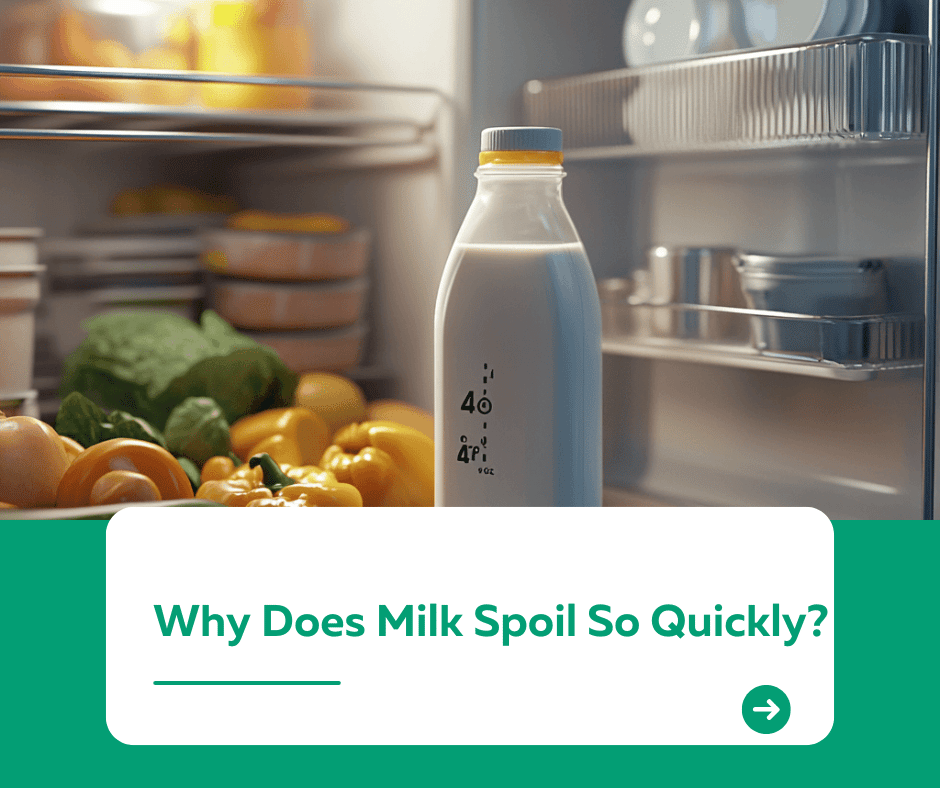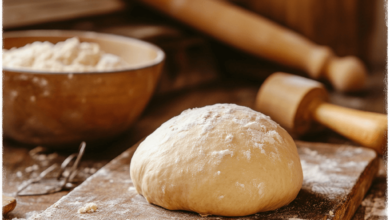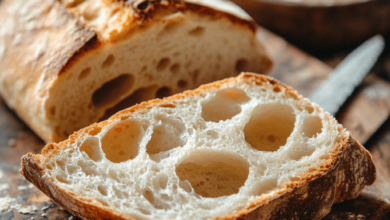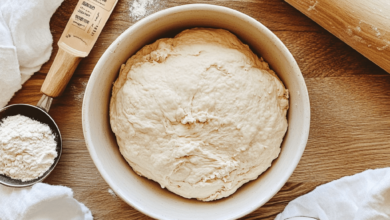Why Does Milk Spoil So Quickly?

Introduction
Milk is a staple in many households, but it often seems to spoil faster than we’d like. Why does milk spoil so quickly, and how can you extend its freshness? The answer lies in milk’s composition and how it interacts with bacteria and storage conditions. In this article, we’ll uncover the reasons behind milk spoilage and provide tips to keep your milk fresher for longer.
1. The Science Behind Milk Spoilage
Milk spoils due to the activity of bacteria and enzymes:
- Bacterial Growth:
- Pasteurization kills most harmful bacteria, but some harmless ones remain and multiply over time.
- Spoilage bacteria feed on milk’s natural sugars, producing lactic acid, which causes sourness.
- Enzymes in Milk:
- Natural enzymes can also break down proteins and fats, contributing to spoilage.
2. Factors That Cause Milk to Spoil Faster
Several factors accelerate milk spoilage:
- Temperature:
- Milk should be stored at or below 40°F (4°C). Higher temperatures encourage bacterial growth.
- Light Exposure:
- Light can break down nutrients and encourage spoilage.
- Repeated Temperature Changes:
- Leaving milk out and returning it to the fridge repeatedly allows bacteria to thrive.
- Container Hygiene:
- Dirty containers or improper sealing can introduce new bacteria.
3. How to Keep Milk Fresh Longer
Follow these tips to extend milk’s shelf life:
- Store Milk in the Coldest Part of the Fridge: Avoid the door, as temperatures fluctuate there.
- Seal the Container Properly: Always close the cap tightly to prevent contamination.
- Keep Milk Away from Light: Store milk in opaque containers or in a shaded spot in the fridge.
- Use Smaller Containers: Divide milk into smaller portions to minimize exposure when pouring.
4. What About Alternative Milks?
Non-dairy milks like almond, soy, or oat milk spoil for similar reasons, though they often have preservatives to extend shelf life:
- Refrigerate After Opening: Even shelf-stable alternatives need refrigeration once opened.
- Follow Expiry Dates: Non-dairy milks may last longer unopened, but spoil just as quickly once opened.
5. Signs Your Milk Has Spoiled
Here’s how to tell if milk has gone bad:
- Smell: Sour or unpleasant odors are a clear sign of spoilage.
- Texture: Lumpy or curdled milk should be discarded immediately.
- Taste: Spoiled milk will taste sour and off.
Conclusion
Milk spoils quickly due to bacterial growth and enzymatic activity, but with proper storage and care, you can significantly extend its freshness. Keep your milk in a cool, dark place, seal it tightly, and avoid temperature fluctuations for best results. For more tips on food storage and kitchen hacks, visit our kuestion.com.




